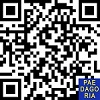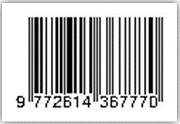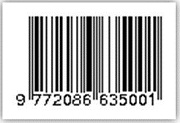DEVELOPMENT OF A QR CODE-BASED PRACTICAL GUIDEBOOK FOR THE INTERNSHIP COURSE IMPLEMENTATION OF INDEPENDENT LEARNING FOR COMMUNITY EDUCATION STUDENTS
Abstract
Keywords
Full Text:
PDFReferences
Deineko, Z., Kraievska, N., & Lyashenko, V. (2022). QR code as an element of educational activity. International Journal of Academic Information Systems Research (IJAISR), 6(4), 26–31. http://www.classtools.net/QR/
Firmansyah, G. (2019). The use of QR code in the educational domain: A research and development on teaching material. Jurnal Pendidikan dan Pembelajaran, 5, 265–278.
Guntur, Firmansyah, & Didik, H. (2019). The use of QR code in the educational domain: A research and development on teaching material. SPORTIF Journal: Journal of Learning Research, 5(2), 265–278.
Harningsih, N. M. A., Mardani, D. M. S., & Suartini, N. N. (2018). Development of a Japanese language guidebook for instructors of Payuk Bali Cooking Class in Ubud. Jurnal Pendidikan Bahasa Jepang Undiksha, 4(3), 232–238 [5] Hamka. (2018). Media Pembelajaran Inklusi (1st ed.). Publikasi Buku Reperensi Media Pembelajaran Inklusi.pdf. http:/eprints.ulm.ac.id/6126/1/B5
Hasanah, A. M., Ismail, & Mukhlishoh, S. (2019). Development of a biology module integrated with Islamic values on human reproductive system material. Jurnal Pendidikan Biologi, 1(1), 17–28.
Jannah, D. R. N., & Atmojo, I. R. W. (2022). Digital media in empowering 21st-century critical thinking skills in science learning at elementary schools. Jurnal Basicedu, 6(1), 1064–1074.
Kusumaningtyas, H. N., & Hakim, L. (2020). Development of a QR Code–based scientific approach book integrated with Kahoot. Jurnal Pendidikan Ekonomi, 13(2), 84–93.
Mulyani, D. (2022). Development of a biology practicum guide on the digestive system concept to enhance critical thinking skills. Journal of Nusantara Education, 1(2), 68–78.
Mulyasa, H. E. (2021). Becoming a teacher as a driver of independent learning. Bumi Aksara.
Ningrum, M. S. (2019). Analysis of the feasibility of biology practicums in private senior high schools (SMA) across Bandar Lampung City for the 2018/2019 academic year.
Nurfadhillah, S. (2021). Learning media: Definition, foundations, functions, benefits, types of learning media, and how to use learning media (1st ed.). CV Jejak, member of IKAPI.
Nurul, Z., Rahmayani, C., Humaira, & Sunarti. (2021). Improving children’s language skills through storytelling using audiovisual media at RA Raudatul Ilmi, Medan Denai District. AUD Cendekia: Journal of Islamic Early Childhood Education, 1(1), 30–48.
Priyambudi, S., & Probowati, Y. (2019). Storytelling activities to improve Indonesian language skills of elementary school children. Proceedings of the National Conference on Community Service and Corporate Social Responsibility (PKM-CSR), 2, 878–883. https://doi.org/10.37695/pkmcsr.v2i0.356
Riyanti, T., Wahyu Agustina, T., & Hadiansah. (2021). Development of QR Code–based “Make A Match” game cards to enhance students’ cognitive skills. BioedUIN: Journal of Biology Education Study Program, 11(1), 1–9.
Sugiyono. (2020). Quantitative, qualitative, and R&D research methods. Bandung: Alfabeta.
Suprianto, S., Ida, K., & Herman, J. A. (2017). Basic Physics 1 practicum guide based on guided inquiry to enhance students’ hard skills and soft skills. Momentum: Physics Education Journal, 1(2), 122–139.
Susilawati, N. (2021). Independent learning and independent campus in the perspective of humanistic educational philosophy. Jurnal Sikola: Journal of Education and Learning Studies, 2(3), 203–219.
Widiastuti, A. (2020). Basic concepts and management of social studies laboratories. UNY Press.
DOI: https://doi.org/10.31764/paedagoria.v16i4.31164
Refbacks
- There are currently no refbacks.
Copyright (c) 2025 Shomedran Shomedran, Mega Nurrizalia, Henny Helmi

This work is licensed under a Creative Commons Attribution-ShareAlike 4.0 International License.
Paedagoria : Jurnal Kajian, Penelitian dan Pengembangan Kependidikan
Fakultas Keguruan & Ilmu Pendidikan | Universitas Muhammadiyah Mataram.
_______________________________________________
 | Paedagoria : Jurnal Kajian, Penelitian dan Pengembangan Kependidikan |
______________________________________________
CURRENT INDEXING:
EDITORIAL OFFICE:


















